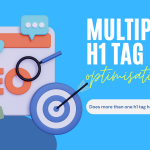Biggest (Fatal) SEO Mistakes – Part 2
This is the second in a series of blog posts I’m doing to point out the biggest SEO mistakes webmasters and newbies do.
This post highlights some more fatal issues and mistakes that we must avoid while optimizing a website. Here are they:
1. Non-SEO friendly website structure
In order to achieve good search engine visibility and before starting any SEO campaign, website must be coded cleanly according to search engine guidelines and parameters.
2. Using Javascript, Silverlight or Flash for site navigation
Search engine spiders are blind to Javascripts, flash, silverlight or any other RIA platform till date. Any navigation/menu system done purely in Javascript/flash/silverlight is a disaster because search engines will not see those links and therefore your listings on search engines will be very very limited.
3. No Keyword research or Wrong keyword selection
This is the most common mistake we often see. Many website owners/webmasters put very little or no effort at all to perform research into the keywords for which they should rank highly.
we have also seen many many businesses target key phrases that are far too competitive, such as single word keywords, which are difficult to rank well for, especially for newly developed websites. Newbie SEO practitioners will also try and place lots of keywords and key phrases all on one page in an attempt to rank highly for all of them.
This completely dilutes the thematic relevance of the page and hence hurts the website authority. Of course, website owners then wonder why they does NOT rank well for any of the key phrases they have selected.
4. Using Text in images
This is still happening far too often. Either the important text on a page being displayed in an image, or the whole page looking like it’s been scanned in by a student with access to Microsoft word and a printer. Search engine can’t read text present in the images. You can better use Image Alt tags to better target your keywords.
5. Poor internal link strategy
Links connects all your pages in the website and allow the traffic to flow. Search engines put a lot of weight on links, and the words that are used in the link text (anchor text). Many web owners/webmaster use words in internal links like “click here” and “learn more”. Don’t make this mistake; use descriptive words in your link text which describes what the target page is about. Anchor text tell the search engine about the page that is linked on and hence help to better determine your website theme relevancy.
This list is by no means definitive but I will highlights some more important points in my future ports… stay tune..
Digital Marketing Consultant and blogger with over a decade of experience in crafting compelling digital strategies. From SEO wizardry to social media magic, I’ve been navigating the digital landscape like a pro. With a knack for engaging content and a passion for innovative marketing solutions, my journey has been all about transforming online presence into powerful brand stories.





